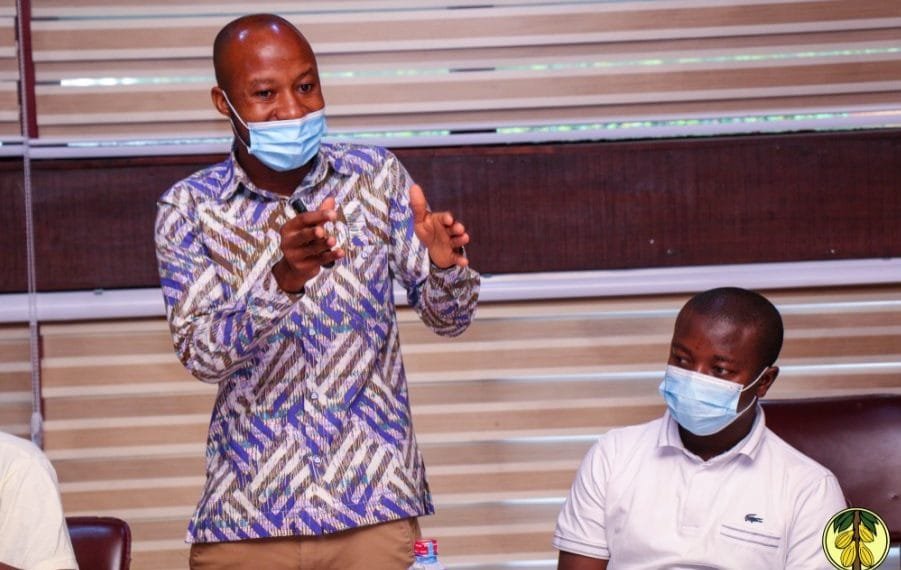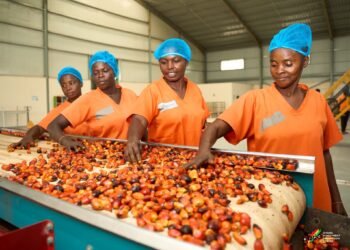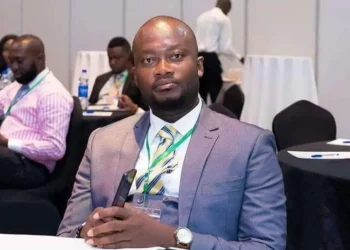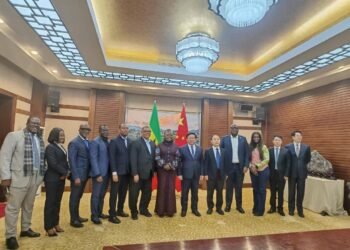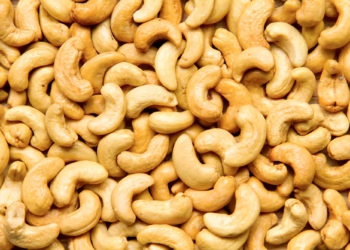Ghana Cocoa Board (COCOBOD) has held a two-day training workshop for some staff of the Research Department on Fairtrade standards and sustainability. COCOBOD organized the training workshop in partnership with Fairtrade Africa, an organization of certified producers of traditional export commodities.
The training workshop sought to enhance the capacity of the COCOBOD Research team to monitor and evaluate sustainability programmes in the cocoa industry. In effect, to ensure value for money for major stakeholders in the cocoa industry i.e., cocoa farmers and the government.
Speaking at the opening session, Mr. Randolph Adei, COCOBOD’s Human Resource Director emphasized the significance of such training. He said training and moulding of human resource is key as it shapes and prepares staff to be effective and make systems work effectively and efficiently.
The Cocoa Programmes Team Leader, Mr. Abubakar Benjamin Afful together with Solomon McBanasam from Fairtrade Africa facilitated the training. Solomon McBanasam is the person in charge of Protection and Advocacy at Fairtrade Africa. The training highlighted the principles of Fairtrade including democracy, transparency, accountability, non-discrimination and participation. These principles must be adhered to by certified farmer cooperatives.
Moreover, the facilitators explained the Fairtrade system as well as the benefits that come with it. They indicated that the benefits include the payment of additional Fairtrade Premiums for the farmers. These farmers in turn dedicate some for developmental projects in their communities, the facilitators explained.
Fairtrade Africa’s Contributions to Cocoa Sustainability
Fairtrade recognises issues of living income and wage as human rights issues that must be respected by stakeholders and actors of the various commodity value chains.
Mr. Afful explained that Fairtrade certifies Cocoa Cooperatives and Farmer Associations rather than Licensed Buying Companies. This is because the ownership of the Fairtrade certificate should be held by the farmers to help deepen benefits to the farmers.
To ensure compliance, FLOCERT – an independent body within the Fairtrade system – is solely mandated to audit producers according to Fairtrade Standards. To clarify, Fairtrade standards focus on good agricultural practices that enable farmers to address climate change through mitigative and adaptative methodologies and technologies.
Fairtrade Africa has outlined its 2021-2025 strategic plan which addresses climate by focusing on sustainable farming systems among other pillars. Under its sustainable farming systems strategic pillar, the organization aims at strengthening its collaboration and capacity building to farmers. Furthermore, its “Dignity for All Cocoa Climate Change project” seeks to empower marginalized Fairtrade-certified Cocoa farmers by strengthening their assets and capabilities. It also seeks to build resilient agro-based trade systems and societies to help farmers earn sustainable livelihoods.
In his closing remarks, Mr. Michael Ekow Amoah, Research Manager, thanked Fairtrade Africa for accepting to train the team. He then entreated the team to apply the skills and knowledge in their daily work. Some other topics treated included processes of Fairtrade certification, traceability, premium management, standards of social compliance, among others. The training also focused on responsible use of agrochemicals, standards on the environment as well as climate change and biodiversity.
Read also: Credit to households picks up, goes above pre-COVID levels

